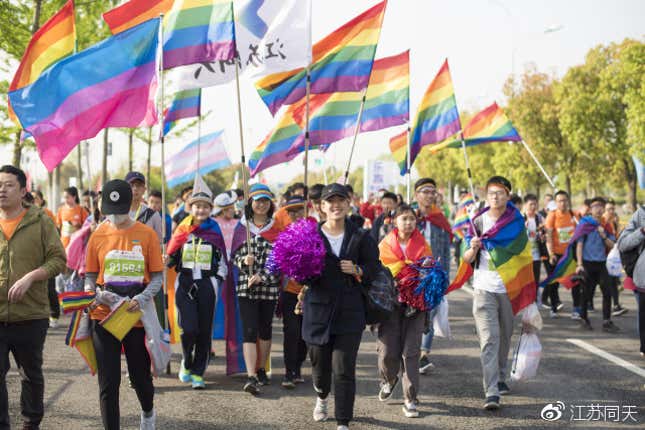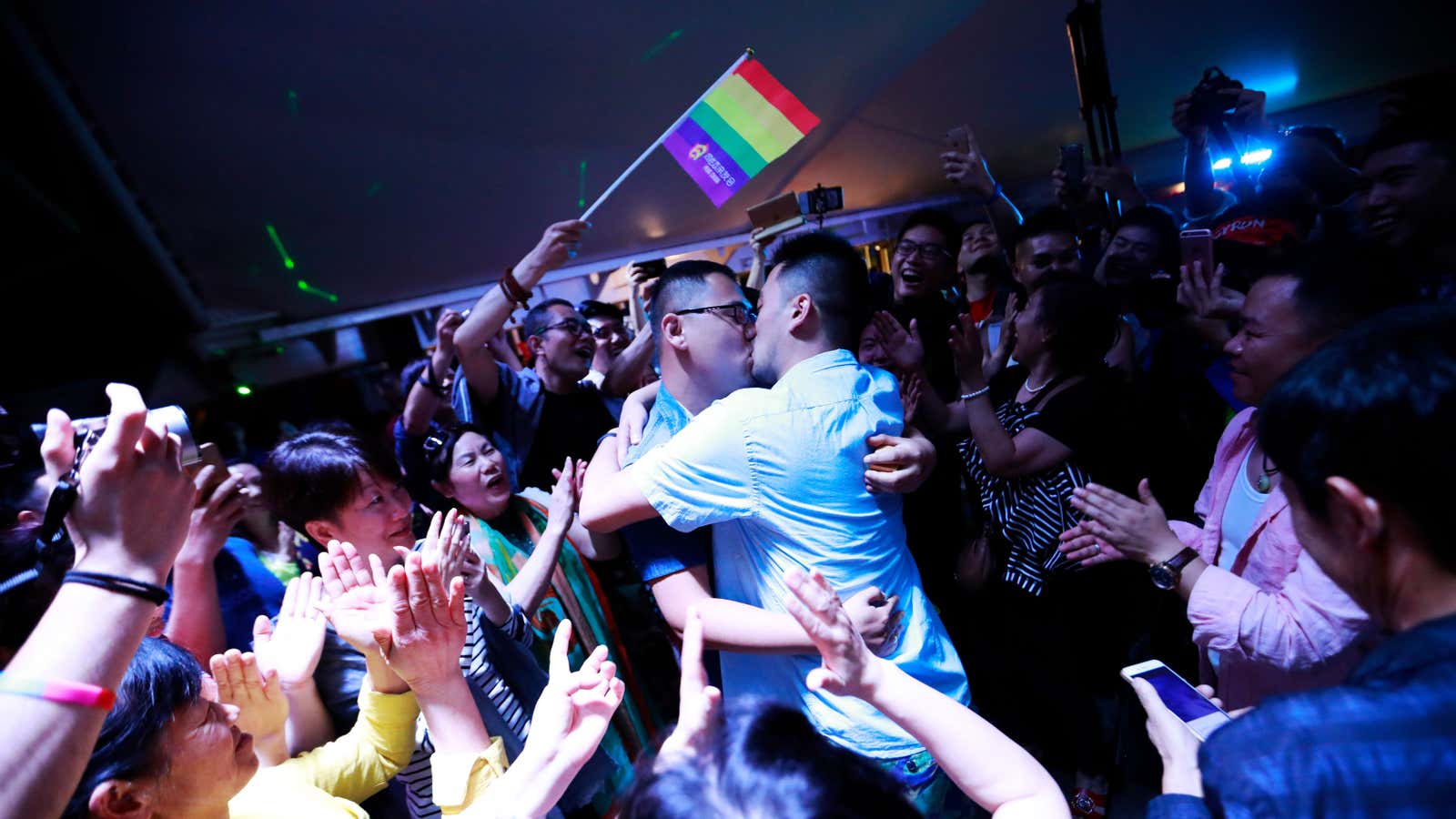China’s answer to Twitter, Sina Weibo, today (April 16) withdrew its short-lived ban on homosexual content, after people came out as gay to protest the ban.
On Friday (April 13), Weibo—one of the country’s most popular social networks—issued a statement that it had begun a three-month “clean-up” campaign on manga, games, short videos and other visual content relating to pornography, violence, and homosexuality. The crackdown was aimed at creating a “clear and harmonious” community in accordance with China’s new cybersecurity law, the site said, with more than 100 accounts and 56,000 posts touching on the banned themes removed so far.
Weibo’s move comes as China continues to tighten its control over the internet, punishing not only political offenses but also entertainment it deems unwholesome. Last week, authorities, citing “vulgar” content, shut down a long list of popular mobile apps, including one focused on tasteless jokes.
The ban on gay content is considered by many as yet another sign of stigmatization against LGBT people in China, more than a decade after the country removed homosexuality from an official list of mental illness. Authorities have issued bans on the portrayal of same-sex relationships on television and online series, and China’s official textbooks contain homophobic content. LGBT events are the routine subject of government crackdowns.

But Weibo’s crackdown backfired after tens of thousands of users protested against the LGBT ban under the hashtag “I am gay.” Many gay people posted their photos with the hashtag, and sometimes with rainbow emojis. One of the most shared posts is from an activist who uploaded a video from a public event where gay people, wearing rainbow-colored eye patches, asked passers-by to give them a hug. He wrote,”If I don’t say anything today, there probably won’t be any chance to do so in the future.”
In an usual move, Weibo then backtracked on its decision, and said in an announcement (link in Chinese) that its clean-up would no longer target any gay content, without offering more details. Weibo didn’t immediately respond to a request for comment on the LGBT ban.
In the past few days, a blog post (link in Chinese) with the title translated as “Hello Sina scum, I am gay” went viral on social-networking app WeChat, even though the original post and its reposts have been deleted numerous times. In the post, the author wondered why China, as the world’s second-largest economy, “can’t be inclusive of two sexualities.” At the end of the article, he made his Weibo account public, and decided to come out as gay despite long fears of discrimination. “I‘m born with it. It can’t be changed, and I don’t want to change,” he wrote.

The crackdown also spurred people to speak out in real life. Hundreds of people participated in a pride run event in Nanjing on Saturday (April 14), a day after Weibo’s announcement of the ban—a public display of activism that is becoming almost extinct in China. The event had in fact been planned and approved by local authorities before the Weibo ban was announced, but it took on greater meaning as a result of the crackdown, organizers said in a Weibo post (link in Chinese).”This is the kind of day worth remembering for a lifetime,” they wrote, adding that Weibo shut down the event’s live stream. Participants chanted slogans including “we have rainbows and courage” on the route, they said.
In the northeastern city of Jinan, PFLAG China, the country’s most prominent gay rights group, on Saturday held a support workshop for LGBT people and their parents. Though the event wasn’t planned because of the crackdown, attendees apparently took note of Weibo’s ban on LGBT content. According to online publication Q Daily (link in Chinese), two lawyers at the scene suggested LGBT people take legal action against Sina, including by suing the company in the US, where it is listed.
PFLAG China’s founder, who goes by the nickname Ah Qiang, wrote in a blog post (link in Chinese) arguing that Weibo wouldn’t have withdrawn the ban on LGBT content if were not for the “I am gay” campaign. “The essence of LGBT movements is coming out… When more and more people stand up, the only thing homophobic people can do is to delete their stupid decisions,” he wrote.
